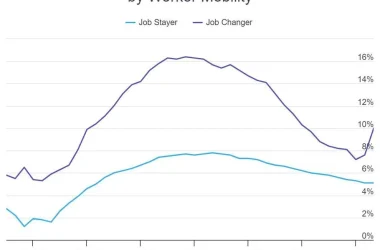By MAX GARLAND
Charleston Gazette-Mail
CHARLESTON, W.Va. — Agriculture industry advocates hope a bill awaiting Gov. Jim Justice’s signature will fulfill the potential of a long-neglected niche crop in the Mountain State — hemp.
“Hemp is really promising as a crop,” said Don Smith II, founder of the West Virginia Farmer’s Cooperative, a group vying for industrial hemp development in the state. “It could be the catalyst for starting the next industrial revolution.”

(Photo by Chris Dorst)
House Bill 2453 calls for expanding who can receive licenses to grow industrial hemp from the Department of Agriculture. Currently, growing hemp is limited to the department itself or those connected to research programs. The bill’s passage would allow licenses for people who want to produce it for profit, following a background check.
Industrial hemp comes from the same plant as marijuana, Cannabis sativa, but has a lower THC concentration — less than 1 percent. It also has manufacturing applications. The plant’s fibers and stalks see use in the production of clothing, paint, plastic and several other materials.
However, hemp’s association with marijuana and being classified as a Schedule 1 drug have factored into the crop’s slow development in West Virginia, according to J. Morgan Leach, CEO of the Farmer’s Cooperative. Last year, a bill that would have nullified all but one growing permit to West Virginia residents made it to then-Gov. Earl Ray Tomblin’s desk before he vetoed it.
But attitudes have begun to change, at least in the Legislature, where the bill saw unanimous passage by both the House and Senate.
“The state has come a long way in its understanding [of hemp],” Leach said.
Now, the bill that would raise the crop’s ceiling in West Virginia only requires Justice’s signature. Advocates are hopeful, even if Press Secretary Grant Herring didn’t shed much light earlier this month on the bill’s chances to get the governor’s approval.
“I think [Justice] understands how adding another crop to the mix could really help the state,” said Spencer Moss, executive director of the West Virginia Food and Farms Coalition. “He’s talked about wanting to diversify our economy, and [hemp] can do that.”
Smith and Leach’s Farmer’s Cooperative has tried to jump start the crop’s growth under the current state rule set. It has helped connect farmers to research programs so they could obtain a license and get the opportunity to grow the crop themselves. The farmers under the cooperative’s umbrella has a collective 30 acres worth of hemp growing this year.
The growing program makes up much of West Virginia’s hemp acreage — according to the National Hemp Association, West Virginia had 67 acres of hemp in 2016.
Kentucky, which has its own hemp research and commercial programs, easily dwarfs that amount, with 4,500 acres worth in 2016. That number has nearly tripled in 2017 — Kentucky’s Department of Agriculture has approved the production of 12,800 acres of hemp for the year.
“Kentucky has left us in a cloud of coal dust,” Smith said.
West Virginia isn’t going to catch up to Kentucky’s acreage in the immediate future, Leach said.
The main challenge will be developing the infrastructure necessary for hemp growing to thrive — the proper farming equipment and raw materials, an abundance of seeds and the expansion of hemp-growing programs to teach the many farmers in West Virginia unfamiliar with the crop.
“When we have a little bit of a bigger infrastructure, you’re going to see [hemp production] grow exponentially,” he said. “It’s going to do well in the region.”
Also an issue is West Virginia’s mountainous terrain, which makes large-scale farming difficult compared to the larger amount of flat land Kentucky features. However, Leach said the Mountain State has plenty of land welcoming to small, independent farmers.
Moss notes a distinct advantage West Virginia has over other states making strides in hemp production: hemp gives the soil it’s planted in additional nutrients to make it more welcoming for the next crop, hemp or otherwise, to grow.
“We have rocky and acidic soil,” she said. “Hemp can still grow in these conditions, and if they do well, the soil could have enough biomass a few years down the line to where you can diversify your crops. It’s a huge opportunity.”
Smith said industrial hemp’s growth could also buoy the manufacturing industry in West Virginia, as companies that rely on hemp for their products could be incentivized to settle in the Mountain State where farms are nearby.
Agriculture Commissioner Kent Leonhardt said he supports the industrial hemp bill, saying it’s a necessary step not only for the state to diversify its economy, but to interest manufacturers in settling in the Mountain State instead of elsewhere.
“We’re looking for alternative services in the state, ones that neighboring states are taking advantage of,” he said. “We won’t recover all of the [energy industry] jobs right away, but this will help quite a bit.”
See more from the Charleston Gazette-Mail




